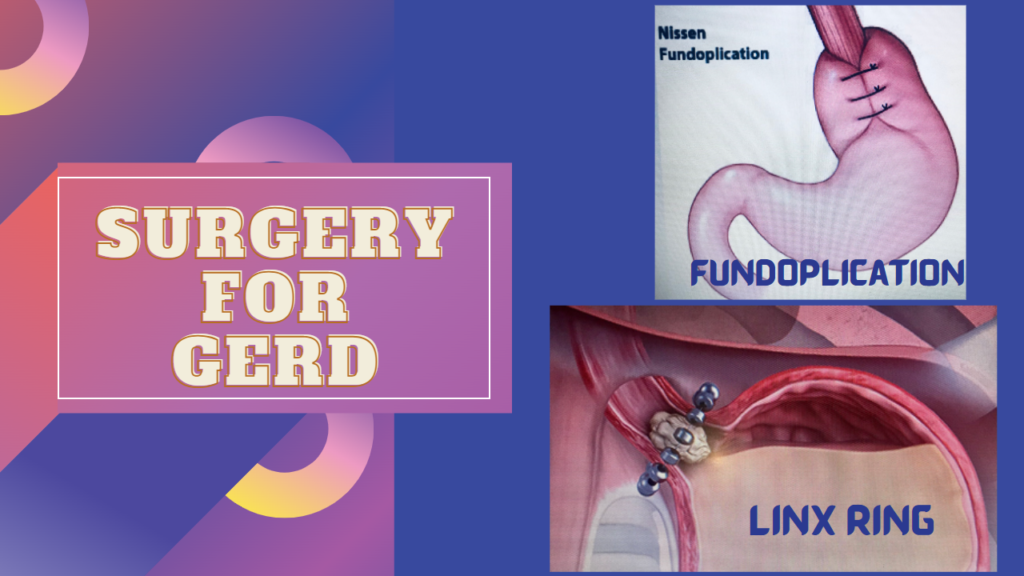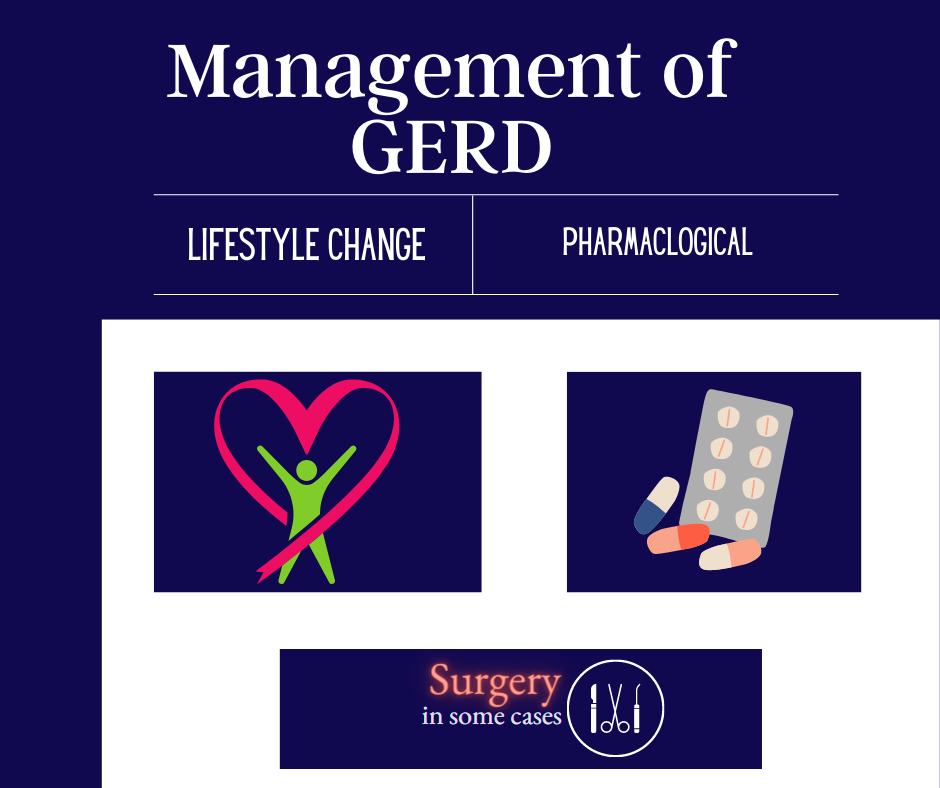Gastroesophageal reflux disease (GERD) is a common condition that affects millions of people around the world. It occurs when the lower esophageal sphincter (LES) fails to close properly, allowing stomach acid to flow back into the esophagus. This acid reflux can cause symptoms such as heartburn, regurgitation, and chest pain. Fortunately, there are several effective ways available for GERD treatment and to improve quality of life.
In this article, we will discuss some of the most common treatments for GERD, including;
- Lifestyle modifications
- Medication
- Surgery
How Lifestyle Modifications Help in GERD
Making lifestyle modifications is often the first line of defense in managing GERD.
- By avoiding trigger foods and beverages, eating smaller meals more frequently, and avoiding lying down immediately after eating, individuals with GERD can reduce their symptoms and improve their quality of life.
- Elevating the head of the bed, and lying straight can also be an effective way to reduce symptoms, as gravity helps keep stomach acid from flowing back into the esophagus.
- Gradual weight loss can also improve LES functioning thus improving symptoms.
- Smoking cessation is also helpful in people with GERD by improving LES function.
- There is some anecdotal evidence to suggest that apple cider vinegar may be helpful in treating GERD symptoms, such as heartburn and acid reflux. It is believed that apple cider vinegar may help to balance the pH levels in the stomach, especially in persons with low acids. Low acid is believed to lead to improper digestion, bloating, and malabsorption of calcium and iron. In such patients diluted apple cider vinegar brings marked improvement. Contrarily adequate levels of acids in the stomach or the one with ulcers, taking vinegar may be troublesome. However, more research is needed to confirm these claims, and there is no clear consensus on the safety or effectiveness of using apple cider vinegar for GERD treatment. Additionally, consuming too much apple cider vinegar (without proper dilution) can be harmful and may cause damage to the teeth and throat. Therefore, it is essential to talk to a healthcare professional before trying apple cider vinegar or any other home remedies for GERD.


How Medication Helps in The Treatment of GERD
Medication can be an effective way to manage GERD, especially for individuals with more severe symptoms.
- Antacids can quickly relieve mild symptoms but are ineffective for long-term use.
- PPIs are more effective for managing GERD long-term, as they reduce the amount of acid produced by the stomach.
- H2 receptor blockers are another type of medication that can be used to reduce stomach acid production.
Remember! Do not self-medicate and consult your doctor before making a decision about the treatment.
How Surgery Helps in Managing GERD
Surgery can be an effective way to manage GERD for individuals who do not respond to medication or lifestyle modifications, or who experience complications such as Barrett’s esophagus. The following options are available in surgery.
Fundoplication
The most common surgical procedure for GERD is called fundoplication, which involves wrapping the upper portion of the stomach around the LES to strengthen it and prevent acid reflux. It is usually reserved for patients with severe symptoms or complications.
LINX
Another surgical procedure that may be used to manage GERD is called LINX, which involves placing a small, flexible metallic ring around the LES. The ring is made of magnetic beads that are connected by a wire, and it is designed to strengthen the LES and prevent stomach acid from flowing back into the esophagus.
The LINX procedure is less invasive than fundoplication and can be performed using minimally invasive techniques. The recovery time is also shorter, with most patients returning to normal activities within a week of the procedure.
Like fundoplication, the LINX procedure is typically reserved for patients with severe GERD symptoms or complications. It may also be recommended for patients who do not respond to medication or lifestyle modifications.

Transoral fundoplication
It is a minimally invasive surgical procedure used to treat GERD by strengthening the LES and reducing the likelihood of reflux. Compared to traditional surgery, transoral fundoplication is less invasive and does not require traditional abdominal incision as it is performed orally, has a shorter recovery time, and maybe a good option for patients who do not respond to medication or lifestyle modifications. However, like any surgical procedure, it carries some risks and potential complications, including bleeding, infection, and difficulty swallowing.
These procedures are effective at managing GERD, but they do carry some risks and potential complications. These can include infection, bleeding, difficulty swallowing, and bloating. It is essential to discuss the risks and benefits of any surgical procedure with a healthcare provider before making a decision.
Overall, surgery can be a viable option for individuals with severe GERD who do not respond to other forms of treatment.
Conclusion
GERD is a common condition that can cause a variety of symptoms. Fortunately, there are several effective treatments available to manage the condition and improve the quality of life. Lifestyle modifications, medication, and surgery can all be effective in managing GERD, depending on the severity.


